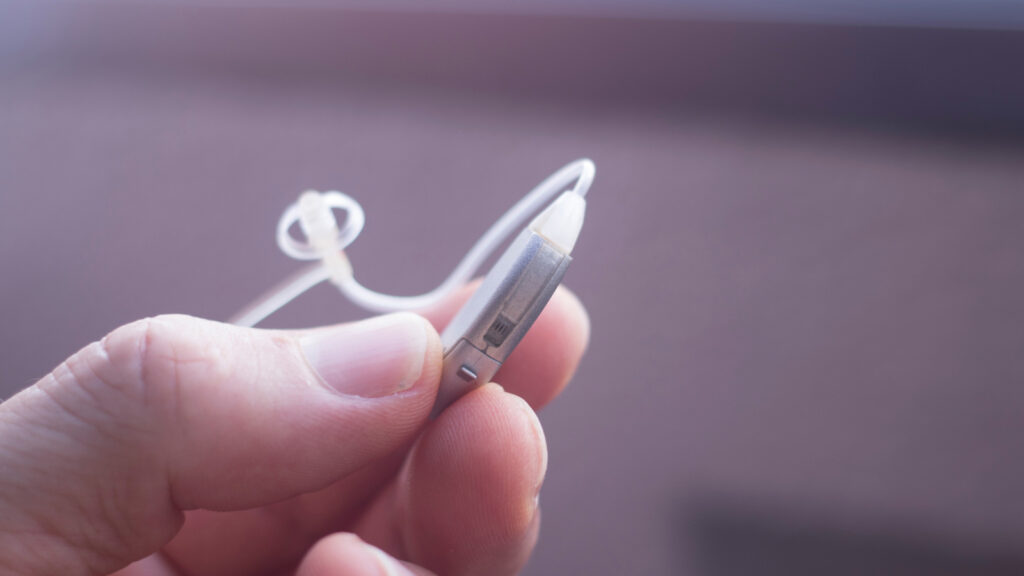There are many hearing aid options available for today’s consumer. With such an array of available technologies, it can be difficult to know what style of hearing aids to choose. Several factors should be used when selecting hearing aids, such as your hearing loss, lifestyle, budget, cosmetics, and ease of use. Your audiologist can help guide you to the hearing devices that best meet your needs.
Traditional hearing aids use disposable zinc air batteries for power. The batteries come with small stickers covering tiny air holes on the face of the batteries, and when the stickers are removed the batteries are activated and use the air for part of their mixture. Zinc air batteries are replaced every few days or weeks.
Rechargeable hearing aids use lithium-ion batteries that are generally located in sealed battery compartments of the hearing aids, so there is no need to replace batteries or remove stickers. They are charged each night when they are placed in their charger, and the charge generally lasts the entire day. Some models will also disinfect the hearing aids as they are being charged. Rechargeable batteries will need to be replaced every three to five years, and are generally covered while the hearing aid warranty is in effect. Some batteries can be replaced in the office by your audiologist, while others will need to be sent back to the manufacturer for replacement.
Several factors can help determine if rechargeable hearing aids are right for you:
- They are a good option for people who have limited dexterity as there is no need to change batteries or open the battery doors when not using the hearing aids.
- They are easy to charge, and most people are already used to charging their cell phones or tablets.
- Some models have travel chargers available to make charging on the go easier.
- Rechargeable aids have a bit more water resistance as the battery compartment is sealed.
- There is no need to purchase batteries.
- There is no danger of children or small pets accidentally swallowing batteries
Some factors that can help determine if you are not a good candidate for rechargeable hearing aids:
- You travel extensively or are often in areas without power for more than a few days
- You use wireless streaming through your hearing aids extensively (this uses more battery life)
- You wear your hearing aids for more than 18 hours per day
Rechargeable hearing aids are increasing in popularity due to their convenience. They are widely available in behind-the-ear styles, and now even custom hearing aids that fit entirely in the ear are also available in rechargeable versions.
Rechargeable hearing aids are a great option for many people, so be sure to check with your audiologist to see if these are a good solution for your hearing needs.

